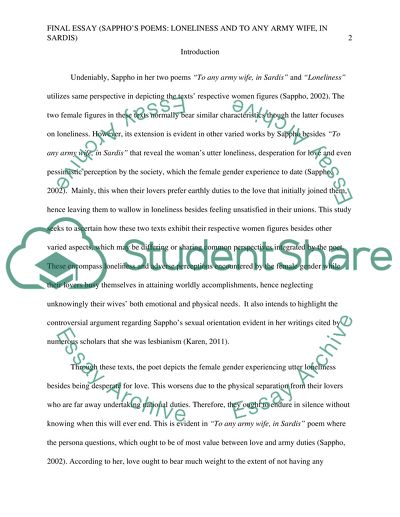Cite this document
(“Sapphos Poems Loneliness and To any army wife, in Sardis Essay”, n.d.)
Retrieved from https://studentshare.org/literature/1465660-sapphos-poems-loneliness-and-to-any-army-wife-in-sardis
Retrieved from https://studentshare.org/literature/1465660-sapphos-poems-loneliness-and-to-any-army-wife-in-sardis
(Sapphos Poems Loneliness and To Any Army Wife, in Sardis Essay)
https://studentshare.org/literature/1465660-sapphos-poems-loneliness-and-to-any-army-wife-in-sardis.
https://studentshare.org/literature/1465660-sapphos-poems-loneliness-and-to-any-army-wife-in-sardis.
“Sapphos Poems Loneliness and To Any Army Wife, in Sardis Essay”, n.d. https://studentshare.org/literature/1465660-sapphos-poems-loneliness-and-to-any-army-wife-in-sardis.


